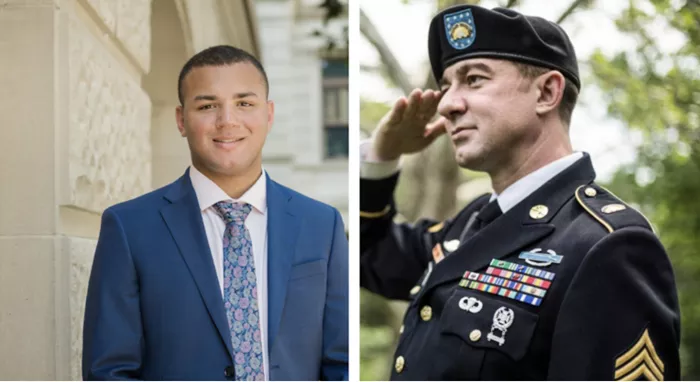In a landmark ruling that marks a significant shift in U.S. military policy, a federal judge has determined that individuals with well-managed HIV cannot be categorically barred from joining the armed forces. This ruling dismantles the last remaining barrier preventing HIV-positive Americans from enlisting, reflecting broader societal changes in how the virus is perceived and managed.
The Ruling
On Thursday, Judge Leonie Brinkema of the U.S. District Court for the Eastern District of Virginia issued a ruling that declared the Pentagon’s policy of prohibiting HIV-positive individuals with undetectable viral loads from enlisting in the military as “irrational, arbitrary, and capricious.” Judge Brinkema’s decision emphasized the outdated nature of the military’s stance, which she argued not only perpetuates stigma but also hampers the military’s recruitment goals.
Brinkema referenced her previous 2022 ruling, which had already ended the Defense Department’s policy of barring service members diagnosed with HIV after enlistment from deploying overseas or being commissioned as officers. In her latest decision, she extended these rights to civilians seeking to join the military, provided they have well-managed HIV and an undetectable viral load.
Advances in HIV Treatment
The judge’s ruling is heavily informed by modern medical advancements in the treatment of HIV. Since the early days of the epidemic, treatment for the virus has evolved dramatically. Antiretroviral therapy (ART) can reduce the viral load in an individual’s bloodstream to undetectable levels, making it impossible to transmit the virus through sexual contact. This development has effectively transformed HIV from a once-fatal disease into a manageable chronic condition, allowing those who are HIV-positive to lead lives that are nearly indistinguishable from those of individuals without the virus.
Today, many HIV-positive individuals manage their condition with a single daily pill. The development of long-acting injectable treatments, such as Cabenuva, which only needs to be administered every one or two months, further simplifies the management of HIV. These advances underscore the argument that people with well-treated HIV are capable of performing all military duties, including deployment, without posing any risk to themselves or others.
The Case of Isaiah Wilkins
The lawsuit that led to this ruling, Wilkins v. Austin, was brought on behalf of three individuals who were barred from joining or rejoining the military due to their HIV status. Isaiah Wilkins, the named plaintiff, discovered his HIV status during a routine medical exam after serving two years in the Georgia Army National Guard. Despite his desire to continue his military career, Wilkins was separated from the U.S. Military Academy Preparatory School (USMAPS) due to his diagnosis. Following the ruling, Wilkins expressed his relief and excitement about the prospect of rejoining the Army, stating, “Giving up on my dream to serve my country was never an option.”
Wilkins’ case highlighted the discriminatory nature of the military’s policy and served as a powerful example of how capable individuals are being unjustly excluded from service based solely on their HIV status.
The Military’s Response and the Road Ahead
As the largest employer in the world, with nearly 3 million employees, the Department of Defense has long stood apart in its treatment of HIV-positive individuals, maintaining restrictive policies that other employers in the United States have abandoned. Employment discrimination against people living with HIV was prohibited as far back as 1998 under the Supreme Court’s interpretation of the Americans With Disabilities Act of 1990, yet the Department of Defense persisted in its exclusionary practices.
The ruling was met with applause from advocacy groups and former military officials who had supported the plaintiffs. A friend-of-the-court brief filed by a group of former high-ranking military officials emphasized the importance of an all-volunteer military that does not exclude able-bodied Americans who are willing and capable of serving, including those with well-managed chronic conditions like HIV.
The Department of Defense did not immediately respond to requests for comment on the ruling. However, this decision is expected to have a profound impact on military recruitment and could lead to further changes in how the military handles other chronic health conditions.
Implications for the Future
This ruling is not only a victory for HIV-positive individuals but also signals a broader shift in societal attitudes toward HIV. It challenges the stigma that has long been associated with the virus and reinforces the idea that those living with HIV can lead full, healthy lives without being defined or limited by their condition.
For the military, this ruling could represent a significant step forward in building a more inclusive and diverse force. As the U.S. military faces ongoing recruitment challenges, removing unnecessary barriers to service could help attract a wider pool of qualified candidates.
Additionally, the ruling may set a precedent for other countries with similar policies to reevaluate their stance on HIV-positive individuals in the military. The decision could inspire global change, encouraging other nations to adopt more inclusive practices and recognize the contributions that people living with HIV can make in various sectors, including national defense.
Conclusion
Judge Brinkema’s ruling represents a milestone in the fight against HIV-related discrimination and underscores the progress that has been made in the treatment and management of the virus. As the military adapts to this new reality, the decision is expected to have far-reaching implications, not only for those directly affected by the policy but also for the broader effort to reduce stigma and promote inclusivity in society. This ruling is a testament to the enduring principle that every capable and willing individual should have the opportunity to serve their country, regardless of their health status.
Related articles:
Support for Healthy Eating Enhances Health Outcomes in People with HIV
New Hope in HIV Care: Integrating Mental Health Support
Stress Hives: Causes, Duration& Management


